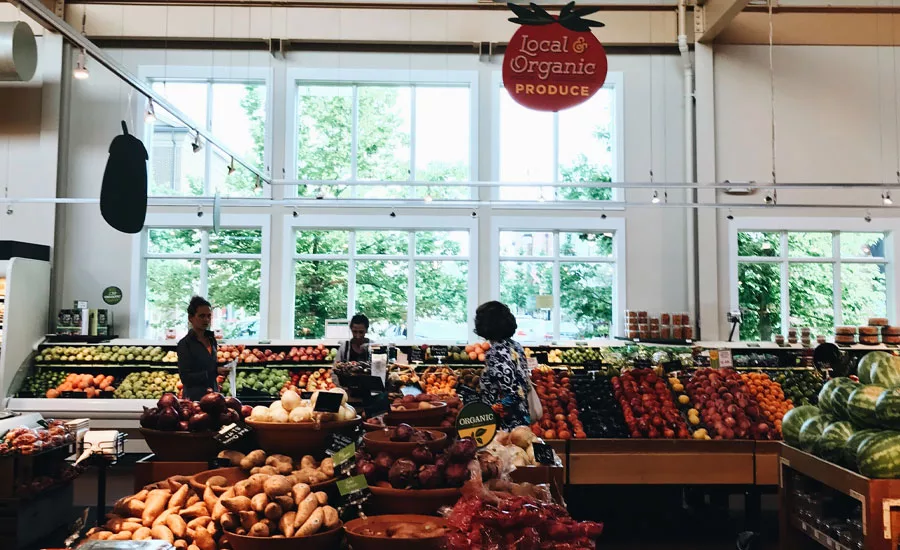Channel Strategies
Organic retailers seize opportunity to grow
Expanded healthy offerings, online ordering could boost sales for organic retailers

In its infancy, specialty retailers were the go-to source for finding natural and organic products. But as mainstream retailers have expanded their selections, natural and organic retailers are facing increased competition.
Santosh Kumar, senior research consultant at Dublin, Ireland-based Fact.MR, notes that the organic retailer business has mushroomed significantly in the past half-decade.
“The organic retail sector is targeting to skim the market to bring down the prices of organic products, owing to a large number of new organic suppliers,” he says. “While organic retailers’ bargaining power with suppliers is increasing, owing to large options, they are also working on optimizing their supply chain to combat the organic retail to organic retail competition. Sourcing products from nearest vendors is one of the strategies that organic retailers have been adopting in recent times to fight competition and foresighted price wars.”
According to Chicago-based SPINS, there already has been some leakage of sales from brick-and-mortar stores to the Internet.
“Retailers need to determine a click-and-collect strategy, and execute on that quickly to prevent the leakage of sales from getting larger, as it may be difficult to gain those shoppers back once they’ve left,” says Michael Erwin, vice president of communications at SPINS.
Erwin says pricing also is essential, and that retailers need to establish prices in the range of those available on the Internet, as well as provide private label options to provide an entry-level price point for cash-strapped shoppers.
Refreshing performance
According to New York-based Nielsen, dollar sales for total organic food and beverage is $27.5 billion for the 52 weeks ending Aug. 22, up from $24.7 billion for the 52-week period ending Dec. 28, 2019. For organic and natural beverages, dollar sales were $65.8 billion, up from $61 billion in 2019.
“Both flavored and non-flavored sparkling water are showing strong growth in SPINS Natural Enhanced Channel, growing 22 percent and 19.6 percent year-over-year, respectively,” SPINS’ Erwin says.
The surge in sales of shelf-stable food and beverages is benefiting natural and organic retailers in the near term, as manufacturers are adjusting operations to meet the increased demand, experts report.
Kunal Ahuja, senior research manager for chemical, polymer and food at Selbyville, Del.-based Global Market Insights (GMI) notes that food manufacturers are focusing production on top-selling products, while increasing development of beverages such as milk, ready-to-drink (RTD) juices and coffee to spur retail sales.
According to SPINS data, oat milk sales in the United States grew by 686 percent during the 52-week period ending in December of 2019. SPINS also found that plant-based milk accounted for 14 percent of sales in the milk category as a whole.
SPINS data also shows a trend of consistent growth in the functional beverage category year-over-year, from 2018 through 2020.
COVID-19’s impact on retailers
Experts note that COVID-19 also is having a noticeable impact on the natural and organic channel.
Fact.MR’s Kumar has observed that COVID-19 has transformed consumer purchase patterns when it comes to organic products. He notes that before the pandemic, consumers purchased a mix of organic and conventional edible products, but that since the beginning of second quarter of 2020, revenue of organic retailers has scaled higher compared with previous months.
Kumar notes that consumers’ concern with immunity has been one of the foremost reasons behind increased purchasing of organic products.
“Consumers now tend to be more realistic and honest about their health and therefore edible product purchase,” he says. “Not only this, bulk purchase of organic food products has also been observed in select urban clusters across the globe.”
GMI’s Ahuja says that natural and organic retailers currently are experiencing growth because of the rising demand for healthy food and beverage products globally. On average, food purchases reflect a sharp growing trend: organic food specifically recently experienced a sales growth of more than 57 percent, Ahuja adds.
“As more and more consumers are embracing natural food products, retailers are experiencing major growth sales since customers have the option of selecting products of various brands from the store shelves,” he says.
Looking ahead
To capitalize on current conditions as more consumers prefer staying at home, experts advise that natural and organic retail stores set up their own delivery models, apps and partnerships with food-delivery apps.
“Business expansion through partnerships between retailers and their supply chain partners will continue to be essential to sustain retail sales,” Ahuja says. “Over-the-counter sales and pick-and-drop facilities should be provided for essential groceries, and home deliveries prioritized to avoid crowding at stores.”
Fact.MR’s Kumar agrees, stating that as more organic retailers implement home delivery systems, these operators also should incorporate retail-level campaigns and coupons to boost sales.
By stocking in-demand, better-for-you food and beverage products, implementing competitive pricing and adding online ordering/pick-up options, natural and organic retailers can continue to compete with other channels in the midst of ongoing flux.
Looking for a reprint of this article?
From high-res PDFs to custom plaques, order your copy today!






